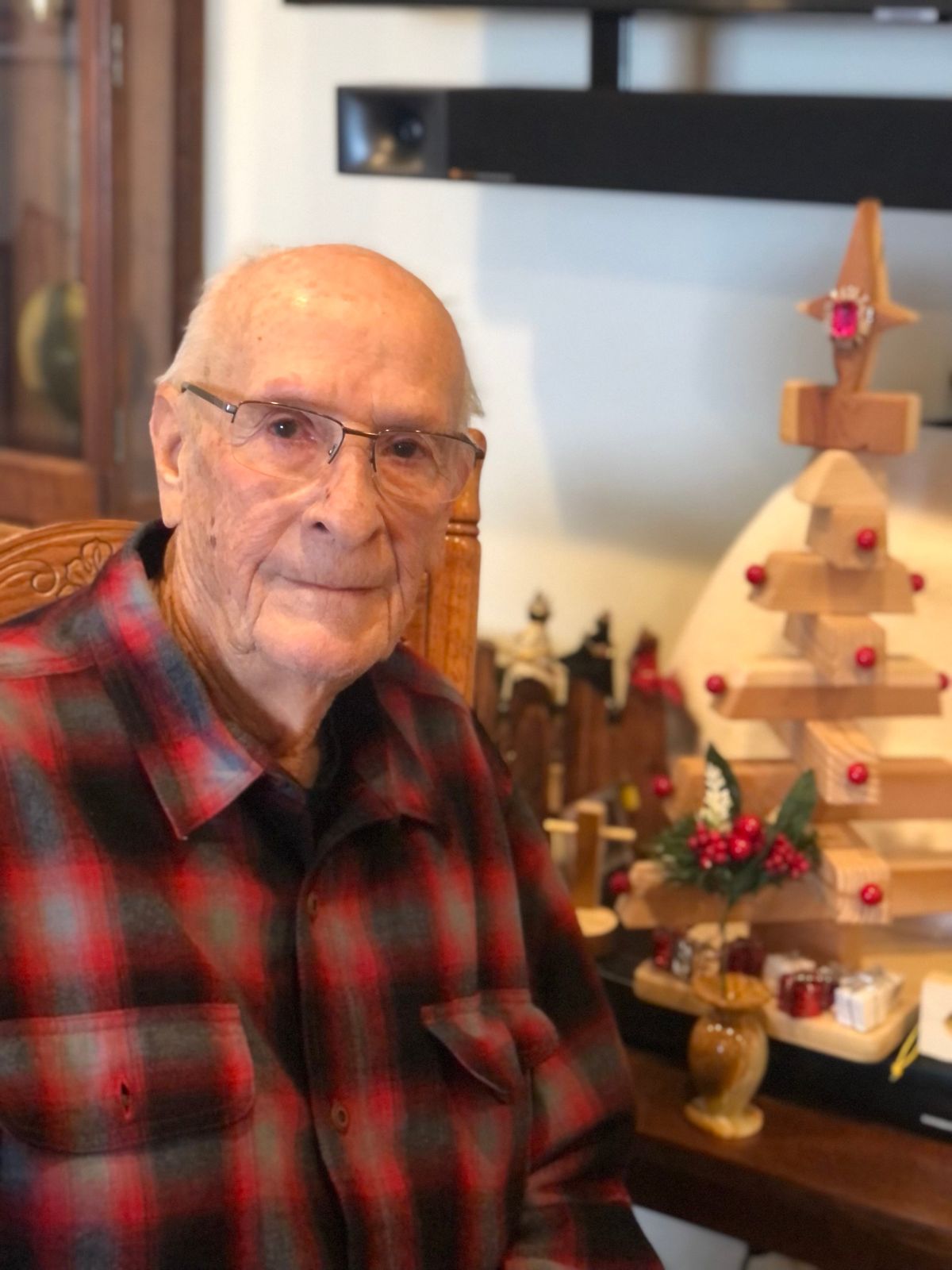Retired firefighter recalls how Salvation Army came through in the most unexpected way

Gary Girod can’t pass a red kettle without placing at least a couple dollars inside.
When the retired firefighter sees a Salvation Army volunteer with a bell, it also takes him back more than 60 years. That’s when the charity showed up for him in the most unlikely of places – stranded on a mountain.
Girod, 85, now lives near Mead. He and his wife met in Spokane while he was in the Air Force. In fall 1960, the couple moved to California for his job with the Ventura County Fire Department. Near Christmas the next year, he and a small crew took the only engine that could climb up a steep terrain to stem a fast-moving wildfire.
“It was 1 a.m. before we felt our lines would hold,” Girod said. “We had started out in the early morning and had no breakfast, no lunch, no dinner; we ran out of our canteen water. We radioed for food and water, but there was no chance of any getting there.”
Those were the days before the department used helicopters or planes to drop fire retardant, Girod said. The fire started in hot wind and low humidity, when an oil well pumping unit ignited adjacent grass, then moved to heavier brush. Ten engines responded.
When a fire chief asked those responders which engine had the best chance to make it up the mountain, only one stood out. It was a 1948 Mack open-cab city engine that carried 400 gallons of water. Girod hopped on the tail board with three others as the driver left the staging area.
“We headed through the burn over a deer trail so steep I thought we were going to flip over backward,” Girod added. “We reached the head of fire and stopped it from behind. Using our water on both flanks, we had it in check until we ran out of water. The only chance of holding it was with brush fire-fighting tools.”
They’d succeeded by those early morning hours. It was bitter cold. The small crew hunkered down, watching for hot spots and waiting for relief that they figured wouldn’t come until morning.
“From down the mountain, we saw headlights,” said Girod, who added that the firefighters thought perhaps the department had gotten a rush repair on a 4-wheel-drive Power Wagon fire truck that was in the shop.
“All eyes were on the approaching headlights anticipating relief. Stopping next to the Mack was an old Buick passenger car. A woman gets out and says, ‘Are you guys hungry?’ ”
The firefighters’ response was, “Who are you?” he said. “She said, ‘We’re Salvation Army with sandwiches and hot coffee.’ That old Buick with Dynaflow automatic transmission crept up our Mack tracks and saved our bacon. What a pleasant surprise.
“I went to headquarters the next day and made a payroll deduction to the Salvation Army for my 28 years in the fire service. I moved on up through the ranks to become training chief and certified logistics chief for the state of California. When I authorized major emergency fire camps to be set up, the Salvation Army was always there to offer their blessing and initial support.”
In fact, Girod said the Salvation Army always showed up first with much-needed food and support before any of the official camps could get organized. Every year still, he gives a donation to the Salvation Army.
“When you hear the Salvation Army bell and see their red kettle, remember the sacrifices they make to meet and help the needs of the community where we live,” he said.
“They show up a lot of times in the middle of the night, because they know that the firefighters have jumped out of bed and rolled out on a fire and they’re going be hot, thirsty, hungry. They’ve always come through with something – at least, they did for me with years and years of service – and they were always there.”